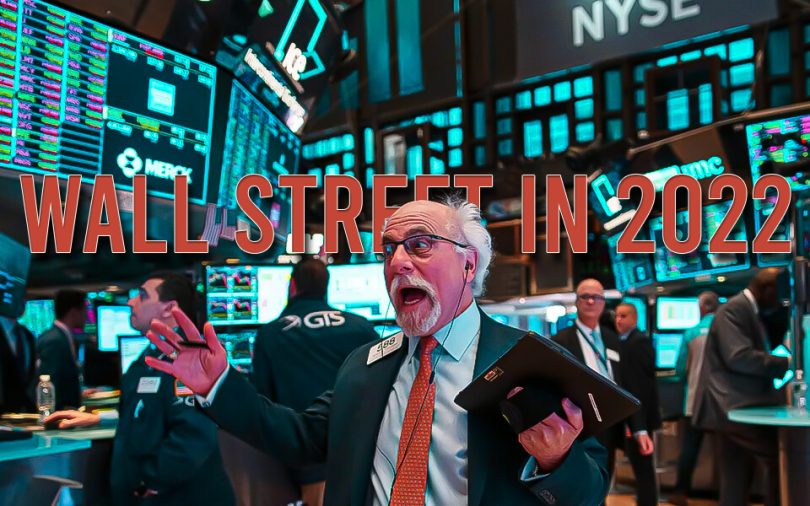What Does It Cover?
- JPMorgan & Chase & Co.’s chief global markets strategist Marko Kolanovic recently warned that the rally in oil and gas stocks is due for a pause.
- The thing that worked in the majority of 2022 was a long-inflation trade.
- The shares are relatively cheap, with energy stocks in the S&P 500 selling for 9.4 times estimated earnings, less than every other group in the benchmark.
- In most years, an 8.2% drop in the Dow Jones Industrial Average would cause a little celebration. But not in 2022.
- The 126-year-old index is extensive on established industrial firms like Boeing and Caterpillar and has relatively limited exposure to tech giants.
The best and the worst trades are recorded and analysed at the end of every financial year. Dealings are extensive and belong to different categories- stocks, company shares, tech stocks, etc.
The long-inflation trade emerged victorious in 2022. It is a positive move. Dollar and the treasury yields are projected to rise on the Federal Reserve’s aggressive policy tightening in 40 years.
In a low-rate environment, technology firms are likely to fall. The takeaway of the year 2022 was the following fact:
- The gainers in the market: A welcome breather after years of insufficient returns for some investors and some stocks.
- Conversely, lose less money than anticipated and the broader markets.
Cramer said he does not blame investors for betting on S&P 500 stocks this year but believes that investors need to learn from their mistakes in 2023.
He claimed, “They’ll be able to bounce the next time we get a nice rally in the broader index, and I think we’re going to have one. I think you should use that chance to pare back on mega-cap tech.”
The stock market profited from the mega-cap tech stocks , which rose to dizzying heights. It was before 2022.
Wars and other political problems significantly contribute to the market direction. The current Russian invasion of Ukraine has caused a tremendous shift. China abandoning the COVID zero policy and restarting consumption has rebounded.
Analysts who covered energy companies in the S&P 500 say the rally isn’t over. 61% of analysts’ computations belong to the ‘Buy recommendations’ for the group. Compare this with 55% for the ‘Broad equities benchmark.’
Value Stocks had a good year running. The increasing interest rates pressurised expensive technology and consumer discretionary shares. A sizable bite was taken from cheaper stocks and offered more near-term cash flows.
The bigshot firms like Caterpillar and Boeing also had a great year. However, rising interest rates reflected on tech high-flyers by making the present value of future profits less appealing.
A pair-trade strategy of shorting an exchange-traded fund tracking the Nasdaq 100 Index – known by its QQQ stock symbol – while buying the Dow would have yielded as much as 35% this year, excluding various costs.
The S & P 500 sector suffered an unforeseeable loss in 2022. However, they could pick up the slack in the next financial year by following specific protocols and strengthening policies.
The stocks that could prove beneficial in 2023 are
- Some automobile industries. They look promising and can be retrieved. Valid reasoning and research could help.
- Financial institutions could pick up the pace and yield significant returns.
Colananni believes, “For consumer discretionary, we are thinking of companies like Starbucks, McDonald’s, Amazon, and Disney. For industrials, we are thinking of companies like 3M, FedEx, and Waste Management.”
The most calculated earnings growth is the sector investors should focus on in 2023. Defensive market sectors with relatively stable earnings outlooks include consumer staples, utilities, and health care. However, they are all down less than 6% on the year.
Soaring interest rates increase the likelihood of an economic slowdown or recession. In the off chance of economic uncertainty, investors tend to sell stocks and other risk assets, compressing stock earnings multiples and deliberating on share prices.
Heralding into 2023, the initial question in the minds of all investors is whether higher interest rates will cause a recession.
Interest rates may rise more in 2023 despite peak inflation. Another investor concern is: Has the stock market hit bottom yet? Only time will be able to provide a suitable answer.
A famous piece of advice among Wall Street strategists now is to resist the bargain-basement appeal of most beaten-up stocks and instead focus on high-quality shares.
The emphasis should be on earning consistently and obtaining good profits. Of course, steady growth is converted into a win, but one should not depend heavily on this factor in a luck-driven economic atmosphere.
This reiterates the vulnerabilities of Wall Street financials and the risky business deals reached. All the players have to be mindful of this fact to prosper.
- Published By Team Australia News








